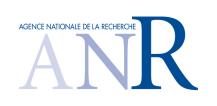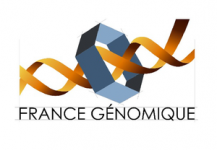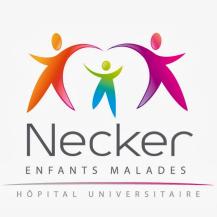Published on 18.12.2025
Presentation
Associate Professor in Bioinformatics and Genomics at Faculty of Medicine, University of Paris, France
Hospital Practitioner at the Molecular Genetics Service of the Necker Hospital of Sick Children, Great Paris University Hospitals (APHP), Paris, France
Team members
- Francisco Requena - PhD candidate
- Antoine Favier - PhD candidate
- Nigreisy Montalvo - PhD candidate
- Alejandro García - Engineer
- Pauline Chaste - PU-PH
- Paul-Antoine Nicolas - Undergraduate fellow
- Marceau Quatredenieres - Embedded bioinformatician
- Elise Amblard - Invited scientist
- Augusto Anguita - Invited scientist
- 1 open Postdoc position
The Clinical Bioinformatics lab
Dr. Antonio Rausell has an Engineering degree with a focus in Biotechnology and a PhD in Bioinformatics. He did his PhD under the supervision of Prof. Alfonso Valencia at the Spanish National Cancer Research Center (CNIO). From 2012 until February 2016 he worked as a postdoctoral researcher with a double affiliation to the Swiss Institute of Bioinformatics (SIB) with Prof. Ioannis Xenarios, and the University Hospital of Lausanne with Prof. Amalio Telenti. During that time he specialized in the study of the genetic basis of susceptibility to infectious diseases and the heterogeneity in the innate immune response at single-cell level. His findings contributed to better characterizing two main paradigms arising from large-scale genome and transcriptome sequencing projects: A) the widespread potential to cause disease of rare loss-of-function variants occurring in heterozygosis through haploinsufficiency or negative dominance; and B) the transcriptional basis of the heterogeneity in permissiveness to infection across single cells within individuals.In March 2016, Dr. Rausell joined the Imagine Institute as Director of the new Clinical Bioinformatics lab. His group develops bioinformatics tools and machine-learning approaches with a clinical focus in two main areas of current research in rare genetic diseases:
- Computational assessment of human genetic variants, by contributing software to predict disease-causing variants, their integration in Personalized Medicine pipelines and their application to exome/genome sequencing projects currently ongoing at the Imagine Institute and the Necker Hospital.
- Analyses of high-dimensional single-cell omics data in functional genomics studies addressing intra-individual cell heterogeneity and how it relates to rare paediatric diseases, including developmental disorders, immune deficiencies and ciliopathies. These analyses are being performed in collaboration with a diverse range of clinical departments, reference disease centers, and experimental research groups.
Dr. Rausell coordinates the integrated Care and Research Program (iCARP) in Computational Decision Support Systems of the Imagine Institute, whose aims are : (a) the identification of markers with a clinical value for diagnosis, prognosis and treatment, and (b) developing artificial intelligence tools to help decision-making at the clinics.
Dr. Rausell has a solid publication track in high-impact journals including Nature Biotechnology, Genome Biology, PNAS and Science Immunology. His work has been regularly presented at international conferences such as those of the American Society of Human Genetics (ASHG) and the International Society of Computational Biology (ISCB). Since 2018 he is co-chair of the Community of Special Interest in Variant Interpretation of the International Society of Computational Biology VarI-COSI. His lab is part of the Milieu Intérieur Consortium for the study of the variability of the immune response.
Methods and Software
Rausell’s lab has recently developed a suite of machine learning methods for the clinical assessment of genetic variants mining clinical, genomic and multi-omics profiling of patient’s samples.
Please click here to access the complete google scholar publication list.
The Github page of the lab can be accessed at: https://github.com/RausellLab/
Methods and Software developed include:
- Cell-ID (Cortal et al. Nature Biotechnology 2021), multivariate statistical method for the gene signature extraction and cell identity recognition at individual cell level from single-cell omics data : https://github.com/RausellLab/CelliD
- CNVxplorer (Requena et al. Nucleic Acids Research 2021), webserver for the computational assessment of structural variants in the context of clinical diagnosis of rare disease patients: http://cnvxplorer.com
- NCBoost (Caron et al., Genome Biology 2019), a method based on gradient tree boosting that exploits a diverse set of sequence constraint features to predict the pathogenicity potential of non-coding single nucleotide variants from Whole Exome/Genome Sequencing: https://github.com/RausellLab/NCBoost
- Tiresias, computational framework for the supervised learning on multiplex biological networks for disease gene prediction and patient stratification: https://github.com/RausellLab/Tiresias. Methodological approaches covered in Tiresias include Random Walks-based diffusion algorithms, graph embeddings and graph neural networks including Convolutional Neural Networks (GCN).
- Sincell: R/Bioconductor package for the statistical assessment of cell state hierarchies from single-cell RNA-seq data. http://bioconductor.org/packages/sincell
- NUTVAR: Null and Truncating variant analysis. Sequence-based functional annotation of truncating variants from genome and exome data. https://journals.plos.org/ploscompbiol/article?id=10.1371/journal.pcbi.1003757
- S3det - MCdet: C++ software for the prediction of functional specificity residues and protein subfamilies from multiple sequence alignments using Multiple Correspondence Analysis. Software integrated in TreeDet server http://treedet.bioinfo.cnio.es and distributed within JDet package
-
JDet: interactive calculation and visualization of function-related conservation patterns in multiple sequence alignments and structures. http://csbg.cnb.csic.es/JDet
Team
Resources & publications
-
 2021Journal (source)medRxiv
2021Journal (source)medRxivCNVxplorer: a web tool to assist clinical interpretation of CNVs in rare dise...
-
 2021Journal (source)medRxiv
2021Journal (source)medRxivIntegrative genetic and immune cell analysis of plasma proteins in healthy do...
-
 Journal (source)Proc. Natl. Acad. Sci. U.S.A.
Journal (source)Proc. Natl. Acad. Sci. U.S.A.Common homozygosity for predicted loss-of-function variants reveals both redu...
-
 2020Journal (source)BioRxiv
2020Journal (source)BioRxivCell-ID: gene signature extraction and cell identity recognition at individua...
-
 2019Journal (source)Genome Biol.
2019Journal (source)Genome Biol.NCBoost classifies pathogenic non-coding variants in Mendelian diseases throu...
-
 Journal (source)J. Allergy Clin. Immunol.
Journal (source)J. Allergy Clin. Immunol.Generation of adult human T-cell progenitors for immunotherapeutic applications.
-
 2017Journal (source)PLoS Pathog.
2017Journal (source)PLoS Pathog.Single-cell analysis identifies cellular markers of the HIV permissive cell.
-
 2016Journal (source)Science Immunology
2016Journal (source)Science ImmunologyPrimary immunodeficiencies suggest redundancy within the human immune system












